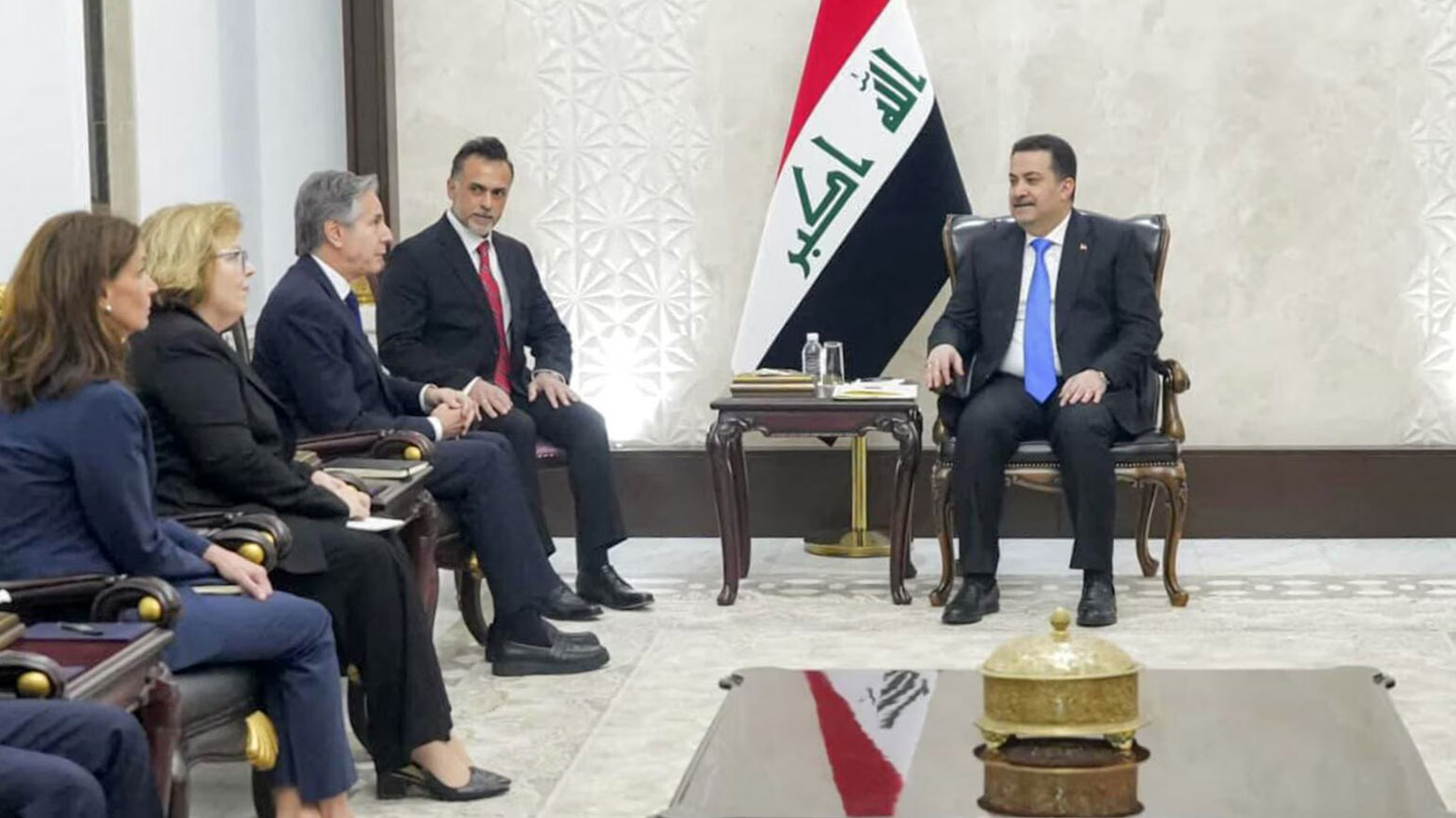As Blinken visits, Baghdad Affirms Commitment to Fighting ISIS
The collapse of the Assad regime has seriously weakened its ally, Iran, and that has given Baghdad enhanced freedom of maneuver and decision-making.

Dec 13, 2024
WASHINGTON DC, United States (Kurdistan 24) U.S. Secretary of State Antony Blinken made an unannounced visit to Baghdad on Friday, his second such visit in that capacity, and met with Iraqi Prime Minister Mohammed Shia’ al-Sudani.
Blinken’s arrival in Baghdad follows just three days after the visit to Baghdad of CENTCOM Commander, Gen. Michael Kurilla, and raises the possibility that there has been a major shift in Baghdad’s position toward the anti-ISIS Coalition.
Read More: CENTCOM Commander Meets Iraqi PM—No Mention of End to Coalition Presence in Iraq
Coalition to Remain in Iraq?
Notably, in neither Blinken’s visit, nor Kurilla’s. did Iraqi officials push for an end to the presence of the Defeat-ISIS Coalition in Iraq. Rather, the opposite was the case.
Following Blinken’s meeting with Sudani, Iraqi government Spokesman, Bassam al-Awadi, issued a warning to ISIS. It seemed to reflect concern that ISIS will exploit the power vacuum in Syria to re-emerge.
Thus, Awadi affirmed, “The international coalition is still present in Iraq,” as the Iraqi News Agency (INA) reported. “ISIS and any extremist organization cannot be allowed to cross the Iraqi border," Awadi said, as he warned, "The security forces with the international coalition are ready to carry out strikes against any terrorist movements.”
Similarly, following Kurilla’s meeting with Sudani, INA reported, “The Prime Minister affirmed Iraq’s essential membership in the Coalition and its commitment to collaborating in tackling and combating terrorist groups to ensure security and stability in the region.”
Currently, the Coalition presence in most of Iraq is slated to end next September, while its presence in the Kurdistan Region would last at least one year after that.
But the collapse of the Assad regime in Syria has seriously weakened its ally, Iran. That has given Baghdad enhanced freedom of maneuver, as the U.S. journalist and analyst, Barbara Slavin, recently explained on the French media outlet, France 24.
That would be welcome news in Erbil. As President Masoud Barzani has said, the presence of Coalition forces is a crucial national issue that transcends party lines and is vital to Iraq's stability and national interests.
Read More: KDP President Masoud Barzani meets with US Ambassador to Iraq
Blinken’s Visit to Iraq
Blinken’s stop in Baghdad on Friday came after visits to Jordan and Turkey, which focused on the situation in Syria.
After meeting with Sudani, Blinken told journalists that much of their discussion had also focused on Syria. But he also affirmed, “We are determined to make sure that Daesh [i.e. ISIS] cannot re-emerge,” as he added, “We’re determined to make sure that that doesn’t happen.”
CJTF-OIR is based in Kuwait. It was while speaking to journalists after meeting with Sudani that Blinken revealed that the CJTF-OIR commander, Maj. Gen.Kevin Leahy, was in Baghdad.
“I’m also very pleased to be here with General Leahy and our DCM [Deputy Chief of Mission] Elizabeth Trudeau, the team here, to hear firsthand, both from our diplomats and from our military, how they see the situation” in both Iraq and Syria, Blinken said, in concluding his remarks.
Apparently, neither Washington nor Baghdad thought there was anything embarrassing in the public acknowledgment that the CJTF-OIR commander was in Iraq, another sign that the Coalition may not be ending any time soon.